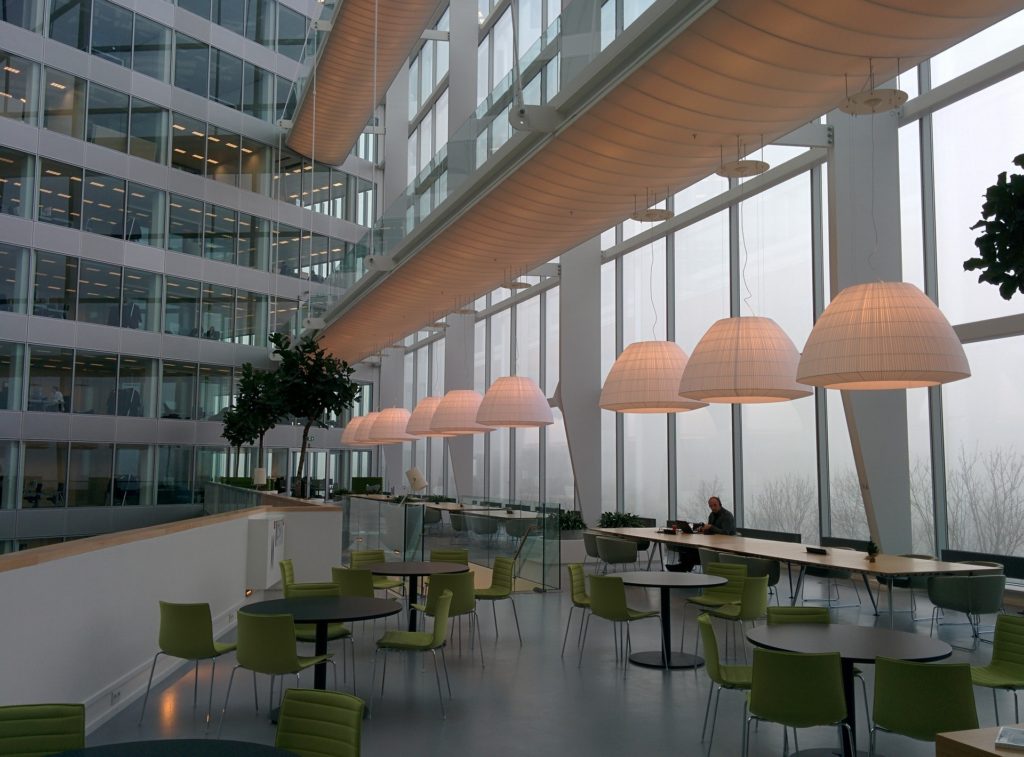Coworking in Commercial Real Estate
How Coworking Is Affecting Commercial Real Estate
“Coworking” seems to be the latest trend in the business world, but it may not be a trend after all. With the world focusing on innovation, it might be an office model that is here to stay. And it may be impacting commercial real estate owners in more ways than one.
Simply put, coworking is a shared workspace for employees from a variety of companies. This type of workspace is the ideal solution for companies with telecommuting employees or employees who are constantly traveling. It offers standard office resources, workable temporary desk spaces, and social interaction with other business personnel. Companies that use these offices don’t have to worry about security, postal services, depreciation of devices, or upkeep of the property. Coworking facilities offer those services in addition to providing several workspace options and desirable amenities like snacks, coffee, and office supplies for their tenants. It seems to be an all-around win for businesses and employees alike. But how is coworking affecting the world of commercial real estate? Will temporary office spaces interrupt the buying and selling of commercial buildings?
The Effect of Coworking on the Market
With over 341 locations across 65 cities, WeWork has grown to become one of the largest coworking companies. In fact, several companies are quickly expanding across the country and around the world. However, the percentage of traditional commercial real estate space is still vastly larger than that of coworking space. For example, an article posted in 2018 explained that coworking space in Manhattan represented just under 1.75% of the 450 million square feet of office space. So while it’s making an impact on the purchase of real estate, it is still only a small piece of the puzzle.
The Benefits of Coworking for Commercial Real Estate Owners
In addition to the model that companies like We Work and Impact Hub are creating, the idea of coworking is multifaceted. For example, this kind of rental structure could bring significant benefits to those who already own commercial space. Since coworking has become the Airbnb of the office world, there is an advantage to having more space than one business can fill. Commercial real estate owners who already have this kind of additional space can also offer a type of DIY coworking space. In this case, the business that owns the building becomes a landlord and can collect passive income by temporarily renting out the unused portion of their property. As long as the property owner has all of the necessary amenities in place, there is monetary value to owning coworking space. Considering the many benefits, it is easy to see why businesses are eager to take advantage of this model.
The Future of Commercial Real Estate
While there are plenty of positive aspects of coworking, this type of office setting likely won’t be overshadowing commercial real estate growth any time soon. These facilities don’t work for all industries. The medical field is a prime example. Hospitals, surgery centers, labs, etc. use space that require specialized equipment for their area of expertise. In fact, the demand for medical offices is set to increase over the next decade.
Coworking spaces are great for entrepreneurs and for a variety of businesses. As these businesses purchase their properties and set-up their workspaces, they excel at catering to individuals and small teams. However, in most cases, there is still a need for the standard home office setting. Commercial real estate as we know it won’t be making large adjustments any time soon. Big cities are still consistently experiencing commercial growth and local, small towns are still building dental and chiropractic offices. For now, coworking and commercial spaces will co-exist.




